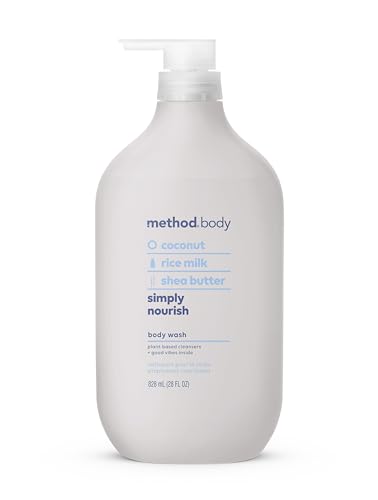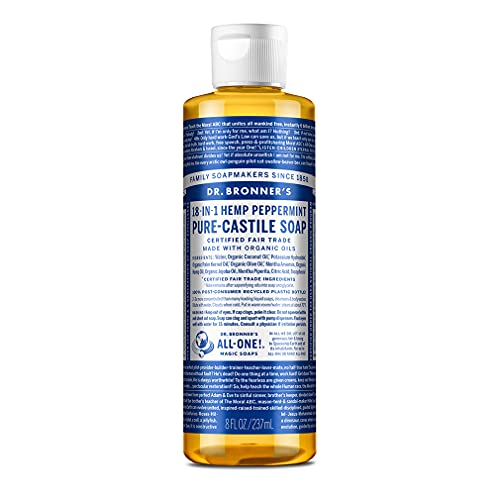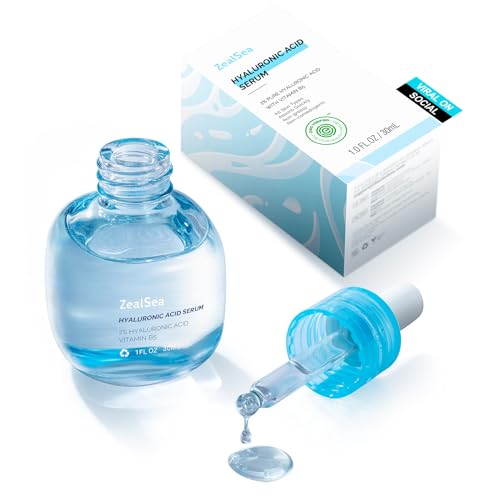
Hilma Stomach Recover + Hydrate - Rebalance Gut with Organic Electrolytes & Prebiotics - 7 Sachets


Malic Acid
High RiskMalic acid is a naturally occurring organic acid found in various fruits, particularly apples. It plays a role in the metabolic processes of living organisms and is commonly used as a flavoring agent, pH regulator, and preservative in food and cosmetic products.
Sustai Insights
Malic acid serves as an effective pH adjuster and flavor enhancer, contributing to the sensory profile of products. However, it may cause skin and eye irritation and has high use restrictions, limiting its application. Regulatory bodies have noted these concerns, leading to restrictions on its use in certain products. Overall, the ingredient is considered high risk due to these factors, necessitating careful usage and consideration of safer alternatives.
Citric Acid
Medium RiskCitric acid is an alpha hydroxy acid used in personal care products primarily for its role as a pH adjuster and natural preservative. It occurs naturally in citrus fruits and is commonly utilized in various formulations for its chelating properties and mild exfoliation benefits.
Sustai Insights
Citric acid offers functional benefits as an effective preservative and pH stabilizer, contributing to product longevity and stability. It is biodegradable and derived from renewable sources. Health risks are low, with minimal concerns regarding carcinogenicity, allergies, and reproductive toxicity. However, moderate use restrictions exist due to potential irritation at high concentrations. Environmental risks are limited, as citric acid is not known to accumulate in ecosystems. Regulatory agencies have no significant advisories against its use. Overall, it is assessed as a medium-risk ingredient, with safe usage practices recommended and alternatives available.
Sodium
Low RiskSodium is a chemical element commonly used in various products, primarily as a preservative and stabilizing agent. It is involved in numerous reactions, contributing to the overall functionality and safety of formulations.
Sustai Insights
Sodium serves as an effective preservative, helping to extend product shelf life. It is generally recognized as safe with low concerns for carcinogenicity, allergies, and reproductive toxicity. However, excessive exposure may lead to health issues like hypertension. Environmentally, sodium is considered low risk regarding pollution and bioaccumulation. Regulatory bodies have not imposed significant restrictions on its use. Overall, the risk associated with sodium is low, making it a suitable ingredient with no major health or environmental concerns.
Potassium Citrate
Low RiskPotassium citrate is a potassium salt of citric acid, commonly used in food, beverages, and cosmetic products as a buffering agent and preservative. It helps maintain pH levels and enhances flavor stability, while also serving as a source of potassium in dietary applications.
Sustai Insights
Potassium citrate offers functional benefits as a buffering agent and preservative, with low potential for health risks such as carcinogenicity, allergies, or reproductive toxicity. Environmentally, it presents minimal risks, being non-bioaccumulative and not contributing significantly to pollution. Regulatory bodies have not imposed major restrictions on its use. Overall, the risk level associated with potassium citrate is low, and it is generally regarded as safe when used appropriately. Alternatives may include other potassium-based salts, though potassium citrate remains a well-regarded option.
Citric Acid
Medium RiskCitric acid is an alpha hydroxy acid used in personal care products primarily for its role as a pH adjuster and natural preservative. It occurs naturally in citrus fruits and is commonly utilized in various formulations for its chelating properties and mild exfoliation benefits.
Sustai Insights
Citric acid offers functional benefits as an effective preservative and pH stabilizer, contributing to product longevity and stability. It is biodegradable and derived from renewable sources. Health risks are low, with minimal concerns regarding carcinogenicity, allergies, and reproductive toxicity. However, moderate use restrictions exist due to potential irritation at high concentrations. Environmental risks are limited, as citric acid is not known to accumulate in ecosystems. Regulatory agencies have no significant advisories against its use. Overall, it is assessed as a medium-risk ingredient, with safe usage practices recommended and alternatives available.
Malic Acid
High RiskMalic acid is a naturally occurring organic acid found in various fruits, particularly apples. It plays a role in the metabolic processes of living organisms and is commonly used as a flavoring agent, pH regulator, and preservative in food and cosmetic products.
Sustai Insights
Malic acid serves as an effective pH adjuster and flavor enhancer, contributing to the sensory profile of products. However, it may cause skin and eye irritation and has high use restrictions, limiting its application. Regulatory bodies have noted these concerns, leading to restrictions on its use in certain products. Overall, the ingredient is considered high risk due to these factors, necessitating careful usage and consideration of safer alternatives.
Sodium
Low RiskSodium is a chemical element commonly used in various products, primarily as a preservative and stabilizing agent. It is involved in numerous reactions, contributing to the overall functionality and safety of formulations.
Sustai Insights
Sodium serves as an effective preservative, helping to extend product shelf life. It is generally recognized as safe with low concerns for carcinogenicity, allergies, and reproductive toxicity. However, excessive exposure may lead to health issues like hypertension. Environmentally, sodium is considered low risk regarding pollution and bioaccumulation. Regulatory bodies have not imposed significant restrictions on its use. Overall, the risk associated with sodium is low, making it a suitable ingredient with no major health or environmental concerns.
Potassium Citrate
Low RiskPotassium citrate is a potassium salt of citric acid, commonly used in food, beverages, and cosmetic products as a buffering agent and preservative. It helps maintain pH levels and enhances flavor stability, while also serving as a source of potassium in dietary applications.
Sustai Insights
Potassium citrate offers functional benefits as a buffering agent and preservative, with low potential for health risks such as carcinogenicity, allergies, or reproductive toxicity. Environmentally, it presents minimal risks, being non-bioaccumulative and not contributing significantly to pollution. Regulatory bodies have not imposed major restrictions on its use. Overall, the risk level associated with potassium citrate is low, and it is generally regarded as safe when used appropriately. Alternatives may include other potassium-based salts, though potassium citrate remains a well-regarded option.
Experience a revitalizing approach to gut health with Hilma Stomach Recover + Hydrate, a doctor-formulated organic electrolyte powder. This delicious Goji Berry-flavored hydration solution combines prebiotics and gastroprotective herbs to rebalance your stomach naturally.
- Gut Rebalancing Formula: Features clinically proven ingredients like Goji Berry and Amla Fruit, designed to soothe and restore digestive balance.
- Hydration Powerhouse: Enriched with coconut water and marine algae for optimal electrolyte replenishment, perfect for post-exercise or recovery.
- Convenient Sachets: Each box contains 7 vegan sachets, easily mixed with water for on-the-go hydration whenever needed.
- Clean Ingredients: Crafted with a commitment to health, this product is Non-GMO, Gluten-Free, and contains no synthetic additives, ensuring a pure experience.
- Ethically Made: Proudly women-owned, Hilma aims to set new standards in wellness with scientifically-backed remedies that empower your health journey.
Subscribe & Save with Sustai
- Best Price Guarantee: Always enjoy the lowest prices on sustainable home essentials.
- No Surprises: We’ll notify you before shipping. No hidden fees, ever.
- You’re in Charge: Change, pause, or cancel your subscription anytime with ease.
- Eco-Friendly Deliveries: Our grouped shipments mean less packaging and lower emissions.
Join us on a sustainable journey. Special offers for a limited time! Prices and promotions may change.
Recommended Products
Experience a revitalizing approach to gut health with Hilma Stomach Recover + Hydrate, a doctor-formulated organic electrolyte powder. This delicious Goji Berry-flavored hydration solution combines prebiotics and gastroprotective herbs to rebalance your stomach naturally.
- Gut Rebalancing Formula: Features clinically proven ingredients like Goji Berry and Amla Fruit, designed to soothe and restore digestive balance.
- Hydration Powerhouse: Enriched with coconut water and marine algae for optimal electrolyte replenishment, perfect for post-exercise or recovery.
- Convenient Sachets: Each box contains 7 vegan sachets, easily mixed with water for on-the-go hydration whenever needed.
- Clean Ingredients: Crafted with a commitment to health, this product is Non-GMO, Gluten-Free, and contains no synthetic additives, ensuring a pure experience.
- Ethically Made: Proudly women-owned, Hilma aims to set new standards in wellness with scientifically-backed remedies that empower your health journey.

You can have at most 2 Sustainable Steals products in your cart
Customer Reviews
Customers’ View
Customers appreciate the soothing effects and pleasant taste of this electrolyte powder, highlighting its role in promoting digestive comfort and overall gut health. Many users report feeling calmer and experiencing less bloating throughout the day, with one customer noting it as their go-to for maintaining gut balance. The mildly sweet Goji Berry flavor is frequently praised for being enjoyable without being overpowering. Additionally, customers value the product's commitment to clean and natural ingredients, aligning with their health-conscious values. Overall, users find this product effective for recovery and hydration, making it a supportive choice for those leading an eco-friendly lifestyle.
AI-generated from the text of customer reviewsThis product has no reviews yet.








